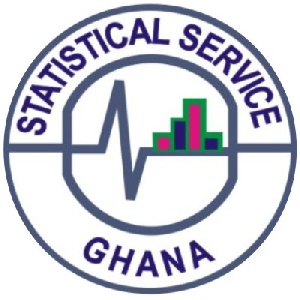 Ghana Statistical Service (GSS) logo
Ghana Statistical Service (GSS) logo
To have reliable data to monitor Ghana’s progress in the Sustainable Developmental Goals, (SDGs), the Ghana Statistical Service (GSS) has received initial funding of US$1.1 million from the Hewlet and Vodafone UK Foundations, both philanthropist agencies, to begin key framework strategies towards achieving agenda 2030 targets.
Hewlet Foundation has contributed US$800,000. Out of this amount, US$450,000 has been channeled into the process of having a Data Quality Assurance Framework (DQAF) for Ghana, whiles the other US$350,000 will go into telecom data training for GSS staff. The US$300,000 from Vodafone Foundation is also expected to fund the training process.
The funding, which was advanced through Care International, a global humanitarian agency, will enable the GSS develop and implement a single data framework platform that will be recognized as reliable and used for official purposes to inform policy by working with government and civil society organizations to advance the SDGs.
Currently, Ghana does not have a data quality assurance framework that guides the statistical agencies on how to align statistics production to the fundamental principles of official statistics, despite all statistical producing agencies having internal quality checks they produce.
The GSS is the only institution with the responsibility for ensuring official data that is produced meets acceptable quality standards. To achieve this, discussions between the GSS and Statistical South Africa are far advanced aimed at developing a data framework for Ghana.
When streamlined, the DQAF will guide the production of official statistics that will enable the integration of data from private sector and Non-Governmental Organizations (NGO) sources into official statistics and it is expected to start fully in January, 2019.
Having a single data framework in place also ensures that data that is produced meet certain basic standards which gives confidence in the use of the data for planning and monitoring programmes that can be easily accessed by everyone.
The DQAF will not only be used by the GSS; all data producing agencies, most especially the Metropolitan, Municipal and District Assemblies (MMDAs) and civil society will have the requisite accurate data for monitoring development projects.
Speaking with the Goldstreet Business, Head of Demographic Statistics and SDGs Coordinator at the GSS, Mr. Omar Seidu underscored the importance of the funding and noted that his outfit has also supported the project in order to make it a viable one.
“They are giving us the initial funding that we need to have the framework developed. But within the National Development Framework for the GSS on the National Statistical System, we have also made funding allocations to ensure that the project is sustainable”
“This internal funding will come in when the framework has been developed to enable the GSS have resources to sustain the project”, Mr. Seidu said.
With technical support from the telecom industry in the country and Flow Minder, a UK based philanthropist agency, amounts of US$350,000 and US$300,000 respectively been provided for data training by Hewlet and Vodafone UK foundations.
The separate funds are designed at training GSS staff on the National Statistical System on how to combine telecom data with survey and census data to produce regular statistical indicators that usually take more time to be produced.
The statistical indicators will focus on areas such as internal migration, access to social services and the spread of communicable diseases all aimed at informing policy to monitor Ghana’s progress of the SDGs.
Telecom Data has been proven to be very useful. However, it has not been used widely to produce official statistics. Ghana is one of the few countries that will be using telecom data to produce official statistics.
According to Mr. Seidu, he noted that the philanthropist agencies did not only show interested in supporting Ghana because as it is one of the drives to produce data to monitor the progress of the SDGs, but it was as a result of frantic efforts Ghana is making towards the achievements of the 2030 target.
“Beyond the two-year programme, Ghana will be in the position to combine telecom data to produce more regular statistics”, he said.